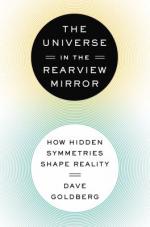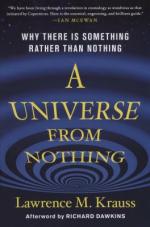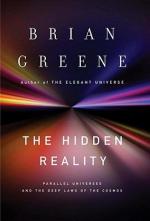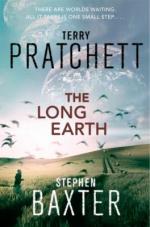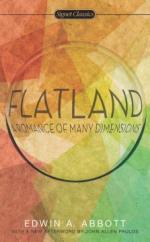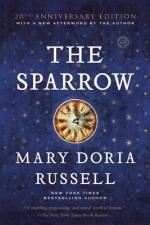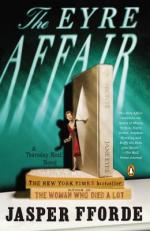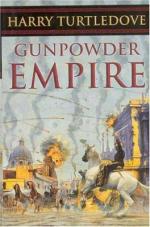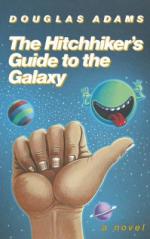- Books
- E-books
- May We Suggest
- parallel universe
- time travel
- space and time
- alternative history
- life on other planets
- Jesuits
- cosmology
- end of the universe
- reality
- Physics
- philosophy
- quantum theory
- Mathematics
- Science
- Science Fiction
October 1, 2016 | madame librarian
Richard Feynman once quipped: "Time is what happens when nothing else does." But Julian Barbour disagrees: if nothing happened, if nothing changed, time would stop. For time is nothing but change. It is change that we perceive occurring all around us, not time. In fact, time doesn't exist. In this highly provocative volume, Barbour presents the basic evidence for the nonexistence of time, explaining what a timeless universe is like and showing how the world will nonetheless be experienced as intensely temporal.
What do snowflakes, mirrors, and the universe as a whole have in common? Physicist Dave Goldberg takes readers on a warp-speed road trip guided by the notion that while randomness may seem to rule our lives, it never seems to erase an essential orderliness. Space, time, and everything in between in our elegant universe - from the Higgs boson to antimatter to the most massive group of galaxies - are shaped by hidden symmetries
pioneering theoretical physicist Lawrence Krauss explains the groundbreaking new scientific advances that turn the most basic philosophical questions on their heads. One of the few prominent scientists today to have actively crossed the chasm between science and popular culture, Krauss reveals that modern science is addressing the question of why there is something rather than nothing, with surprising and fascinating results. The staggeringly beautiful experimental observations and mind-bending new theories are all described accessibly in A Universe from Nothing, and they suggest that not only can something arise from nothing, something will always arise from nothing.
"The Hidden Reality" reveals how major developments in different branches of fundamental theoretical physics -- relativistic, quantum, cosmological, unified, computational -- have all led us to consider one or another variety of parallel universe.
Police officer Monica Jansson, while exploring the burned-out home of a reclusive scientist, finds a curious gadget which turns out to be something called a "stepper", which allows people to step into an alternate Earth at any place and time.
"Edwin A. Abbott's satirical 1884 novella Flatland: A Romance of Many Dimensions is "on the surface" an examination of multiple dimensions. With wry humor and penetrating satire, Flatland takes us on a mind-expanding journey into a different world to give us a new vision of our own. A. Square, the slightly befuddled narrator, is born into a place limited to two dimensions—irrevocably flat—and peopled by a hierarchy of geometrical forms. In a Gulliver-like tour of his bizarre homeland, A. Square spins a fascinating tale of domestic drama and political turmoil, from sex among consenting triangles to the intentional subjugation of Flatland’s females. He tells of visits to Lineland, the world of one dimension, and Pointland, the world of no dimension. But when A. Square dares to speak openly of a third, or even a fourth, dimension, his tragic fate climaxes a brilliant parody of Victorian society. An underground favorite since its publication in England in1884, Flatland is as prophetic a science fiction classic as the works of H. G. Wells, introducing aspects of relativity and hyper-space years before Einstein’s famous theories. And it does so with wonderful, enduring enchantment."
The Sparrow is a novel about a remarkable man, a living saint, a life-long celibate and Jesuit priest, who undergoes an experience so harrowing and profound that it makes him question the existence of God. This experience--the first contact between human beings and intelligent extraterrestrial life--begins with a small mistake and ends in a horrible catastrophe.
Great Britain circa 1985: time travel is routine, cloning is a reality (dodos are the resurrected pet of choice), and literature is taken very, very seriously. Amidst all this, Acheron Hades, Third Most Wanted Man In the World, steals the original manuscript of Martin Chuzzlewit and kills a minor character, who then disappears from every volume of the novel ever printed! But that's just a prelude . . . Hades' real target is the beloved Jane Eyre, and it's not long before he plucks her from the pages of Bronte's novel. Enter Thursday Next. She's the Special Operative's renowned literary detective, and she drives a Porsche. With the help of her uncle Mycroft's Prose Portal, Thursday enters the novel to rescue Jane Eyre from this heinous act of literary homicide.
Jeremy Solter is a teenager growing up in the late 21st century. During the school year, his family lives in Southern California - but during the summer the whole family lives and works on the frontier of the Roman Empire. Not the Roman Empire that fell centuries ago, but a Roman Empire that never fell: a parallel timeline, one of an infinity of possible worlds.For in our timeline, we now have the technology to move among these. Some are uninhabitable; some are ghastly, such as the one where Germany won World War II. But many are full of resources and raw materials that our world can use.
Arthur Dent, a refugee from the late planet Earth and his pal from the planet Betelgeuse, Ford Prefect, thumb their way thru comic misadventures throughout the Universe.


